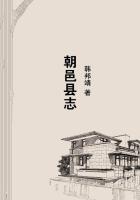1: Statement of Joel Hetman, Jr.
I AM the most unfortunate of men. Rich, respected, fairly well educated and of sound health--with many other advantages usually valued by those having them and coveted by those who have them not--I sometimes think that I should be less un-happy if they had been denied me, for then the contrast between my outer and my inner life would not be continually demanding a painful attention. In the stress of privation and the need of effort I might sometimes forget the sombre secret ever baffling the conjecture that it compels.
I am the only child of Joel and Julia Hetman. The one was a well-to-do country gentleman, the other a beautiful and accomplished woman to whom he was passionately attached with what I now know to have been a jealous and exacting devotion.
The family home was a few miles from Nash-ville, Tennessee, a large, irregularly built dwell-ing of no particular order of architecture, a little way off the road, in a park of trees and shrubbery.
At the time of which I write I was nineteen years old, a student at Yale. One day I received a tele-gram from my father of such urgency that in com-pliance with its unexplained demand I left at once for home. At the railway station in Nashville a dis-tant relative awaited me to apprise me of the reason for my recall: my mother had been barbarously murdered--why and by whom none could conjec-ture, but the circumstances were these.
My father had gone to Nashville, intending to re-turn the next afternoon. Something prevented his accomplishing the business in hand, so he returned on the same night, arriving just before the dawn.
In his testimony before the coroner he explained that having no latchkey and not caring to disturb the sleeping servants, he had, with no clearly defined intention, gone round to the rear of the house. As he turned an angle of the building, he heard a sound as of a door gently closed, and saw in the darkness, in-distinctly, the figure of a man, which instantly dis-appeared among the trees of the lawn. A hasty pur-suit and brief search of the grounds in the belief that the trespasser was some one secretly visiting a servant proving fruitless, he entered at the un-locked door and mounted the stairs to my mother's chamber. Its door was open, and stepping into black darkness he fell headlong over some heavy object on the floor. I may spare myself the details; it was my poor mother, dead of strangulation by human hands!
Nothing had been taken from the house, the serv-ants had heard no sound, and excepting those ter-rible finger-marks upon the dead woman's throat--dear God! that I might forget them!--no trace of the assassin was ever found.
I gave up my studies and remained with my father, who, naturally, was greatly changed. Always of a sedate, taciturn disposition, he now fell into so deep a dejection that nothing could hold his atten-tion, yet anything--a footfall, the sudden closing of a door--aroused in him a fitful interest; one might have called it an apprehension. At any small surprise of the senses he would start visibly and sometimes turn pale, then relapse into a melancholy apathy deeper than before. I suppose he was what is called a 'nervous wreck.' As to me, I was younger then than now--there is much in that. Youth is Gilead, in which is balm for every wound. Ah, that I might again dwell in that enchanted land! Un-acquainted with grief, I knew not how to appraise my bereavement; I could not rightly estimate the strength of the stroke.
One night, a few months after the dreadful event, my father and I walked home from the city. The full moon was about three hours above the eastern horizon; the entire countryside had the solemn still-ness of a summer night; our footfalls and the cease-less song of the katydids were the only sound, aloof.
Black shadows of bordering trees lay athwart the road, which, in the short reaches between, gleamed a ghostly white. As we approached the gate to our dwelling, whose front was in shadow, and in which no light shone, my father suddenly stopped and clutched my arm, saying, hardly above his breath:
'God! God! what is that?'
'I hear nothing,' I replied.
'But see--see!' he said, pointing along the road, directly ahead.
I said: 'Nothing is there. Come, father, let us go in--you are ill.'
He had released my arm and was standing rigid and motionless in the centre of the illuminated road-way, staring like one bereft of sense. His face in the moonlight showed a pallor and fixity inexpressibly distressing. I pulled gently at his sleeve, but he had forgotten my existence. Presently he began to re-tire backward, step by step, never for an instant removing his eyes from what he saw, or thought he saw. I turned half round to follow, but stood ir-resolute. I do not recall any feeling of fear, unless a sudden chill was its physical manifestation. It seemed as if an icy wind had touched my face and enfolded my body from head to foot; I could feel the stir of it in my hair.
At that moment my attention was drawn to a light that suddenly streamed from an upper window of the house: one of the servants, awakened by what mysterious premonition of evil who can say, and in obedience to an impulse that she was never able to name, had lit a lamp. When I turned to look for my father he was gone, and in all the years that have passed no whisper of his fate has come across the borderland of conjecture from the realm of the unknown.
2: Statement of Caspar Grattan To-day I am said to live, to-morrow, here in this room, will lie a senseless shape of clay that all too long was I. If anyone lift the cloth from the face of that unpleasant thing it will be in gratification of a mere morbid curiosity. Some, doubtless, will go further and inquire, 'Who was he?' In this writing I supply the only answer that I am able to make--Caspar Grattan. Surely, that should be enough.
The name has served my small need for more than twenty years of a life of unknown length. True, Igave it to myself, but lacking another I had the right.













